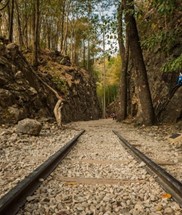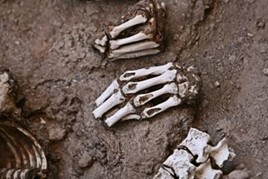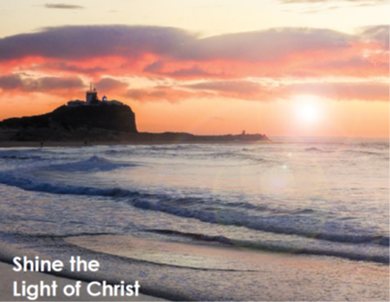I found the online Mass from the Cathedral to be very moving, with its prayers, readings, homily and music. This is just one way of lamenting our history of sexual abuse of children by some clergy and other people working in our diocese.
A couple of weeks ago at a conference one of the presenters spoke about a “penitential memory” which is referred to in Pope Francis’ Encyclical Letter, Fratelli Tutti (On Fraternity and Social Friendship). The presenter spoke about truth, justice, and forgiveness, as a way to building peace. This penitential memory is about forgiveness and remembering in a new way.
I will share with you the words from paragraph 226 and 227 of Fratelli Tutti which reflect on Starting Anew from Truth:
Renewed encounter does not mean returning to a time prior to conflicts. All of us change over time. Pain and conflict transform us. We no longer have use for empty diplomacy, dissimulation, double-speak, hidden agendas and good manners that mask reality. Those who were fierce enemies have to speak from the stark and clear truth. They have to learn how to cultivate a penitential memory, one that can accept the past in order not to cloud the future with their own regrets, problems and plans. Only by basing themselves on the historical truth of events will they be able to make a broad and persevering effort to understand one another and to strive for a new synthesis for the good of all. Every “peace process requires enduring commitment. It is a patient effort to seek truth and justice, to honour the memory of victims and to open the way, step by step, to a shared hope stronger than the desire for vengeance”……. (226)
“Truth, in fact, is an inseparable companion of justice and mercy. All three together are essential to building peace; each, moreover, prevents the other from being altered… Truth should not lead to revenge, but rather to reconciliation and forgiveness. Truth means telling families torn apart by pain what happened to their missing relatives. Truth means confessing what happened to minors recruited by cruel and violent people. Truth means recognizing the pain of women who are victims of violence and abuse… Every act of violence committed against a human being is a wound in humanity’s flesh; every violent death diminishes us as people… Violence leads to more violence, hatred to more hatred, death to more death. We must break this cycle which seems inescapable. (227)
 At the moment, on a Saturday evening Allen and I explore finding a movie to relax with, and this Saturday we watched The Railway Man (2013), which told the story of the return of a man to England after being treated very harshly in a prisoner of war camp on the Thai-Burma railway, after the fall of Singapore during World War II. He becomes aware that one of his Japanese captors is still alive, and he pursues him with the thought of vengeance. The final scenes from the movie spoke powerfully to me of anger and hatred which move to forgiveness, healing and peace. The captor accepts his part in the violence and betrayal of his country and his ongoing suffering of remembering, and says he is sorry and seeks forgiveness. The captive was able to move towards forgiveness and healing because he had found real, unconditional love from a woman. The contrast of the men’s eye contact with each other in the earlier scenes of the movie, and the latter ones could not be more distinct – they move from despise to humility and mercy. The final words spoken from a letter are:
At the moment, on a Saturday evening Allen and I explore finding a movie to relax with, and this Saturday we watched The Railway Man (2013), which told the story of the return of a man to England after being treated very harshly in a prisoner of war camp on the Thai-Burma railway, after the fall of Singapore during World War II. He becomes aware that one of his Japanese captors is still alive, and he pursues him with the thought of vengeance. The final scenes from the movie spoke powerfully to me of anger and hatred which move to forgiveness, healing and peace. The captor accepts his part in the violence and betrayal of his country and his ongoing suffering of remembering, and says he is sorry and seeks forgiveness. The captive was able to move towards forgiveness and healing because he had found real, unconditional love from a woman. The contrast of the men’s eye contact with each other in the earlier scenes of the movie, and the latter ones could not be more distinct – they move from despise to humility and mercy. The final words spoken from a letter are:
“Sometimes the hating has to stop.”
You may wish to see these scenes captured in this 6-minute movie clip:
https://www.youtube.com/watch?v=cITytTokhtk
This brings me back to Fratelli Tutti:
The important thing is not to fuel anger, which is unhealthy for our own soul and the soul of our people, or to become obsessed with taking revenge and destroying the other. No one achieves inner peace or returns to a normal life in that way. The truth is that “no family, no group of neighbours, no ethnic group, much less a nation, has a future if the force that unites them, brings them together and resolves their differences is vengeance and hatred. We cannot come to terms and unite for the sake of revenge, or treating others with the same violence with which they treated us, or plotting opportunities for retaliation under apparently legal auspices. Nothing is gained this way and, in the end, everything is lost. (242)
I invite you to read Ezekiel 37:1-14 which was the First Reading for the Liturgy for the Mass of the Perpetual Day of Remembrance. It is the reading about ‘dry bones’ and about the hand of the Lord instructing Ezekiel to prophesy over this valley of dry bones, such that they are given sinews, flesh and skin and eventually breath and spirit. Certainly, this is our desire, that the dry bones of our church will be brought back to life, so that we will once again know that the Lord is with us.
Maybe you did not have the opportunity to tune into Mass over the weekend, and I invite you to take the time to go to Sunday’s Mass on the Cathedral YouTube channel. Fr Andrew Doohan’s homily, along with the Universal Prayer, are worthy of your time and reflection.

I finish this week’s message with the Commission to Shine the Light of Christ, at the end of Sunday’s Mass:
Presider: Let us walk in the Light of the Lord.
Let us not fear the past
when our hearts were heavy.
All: Let us Shine the Light of Christ. (Is. 2:5)
Presider: Let us bring light from the darkness.
Let us make evil good
and find sweet in the bitter.
All: Let us Shine the Light of Christ. (Is. 5:20)
Presider: Let us weep together
when the light grew dark with the clouds,
from the darkness and distress.
All: Let us Shine the Light of Christ. (Is. 5:30)
Presider: Let us walk with our brothers and sisters,
those who have walked in darkness.
Let them see the great Light of God.
All: And let us Shine the Light of Christ. (Is. 9:2)
Composed by Fiona Duque © 2019 Diocese of Maitland-Newcastle. All rights reserved
May you find that you can respond from your heart during this coming week.
Teresa Brierley
Director Pastoral Ministries
14 September 2021